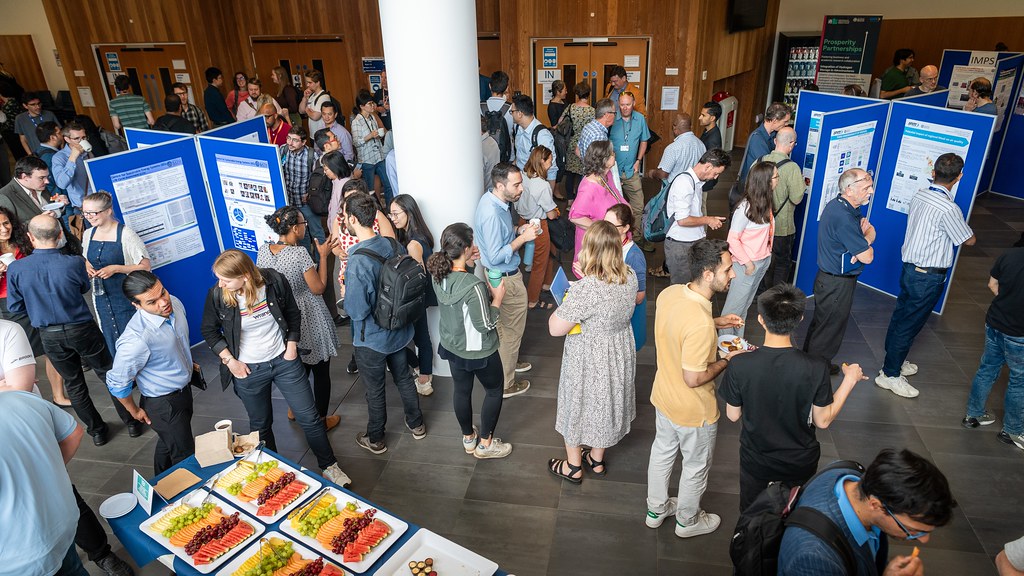The Faculty of Engineering & Design has restructured its research centres to better reflect the institution’s strategic priorities of providing research solutions to major challenges in the fields of sustainability, digitisation, and health and wellbeing.
Six new or strategically realigned centres and one new institute will exist in the Faculty’s new research architecture, with centres focusing on research in areas including sustainable energy, bioengineering, climate adaptation and mobility.
Dean of the Faculty of Engineering & Design, Professor Tim Ibell, said: “The greatest challenges facing humanity cannot possibly be solved through single-discipline research. We need to be covered in Velcro to attract collaborators across boundaries if we are to achieve globally-leading research with impact. This is what these new Research Centres are trying to achieve. They are based in, and funded by, the Faculty of Engineering and Design, but their doors are wide open for all comers. The world needs this approach.”
The new centres/institutes, their respective missions, research themes/topics and lead staff are:
The Centre for Bioengineering & Biomedical Technologies (CBio)
Improving health and wellbeing through world-leading bioengineering research.
Research themes/topics:
Biomedical engineering: biosensors; lab-on-chip; organ-on-chip; tissue engineering; implantable and wearable devices
Bioprocess engineering: cell manufacturing; bioenergy; bio-based food
Biomechanical engineering: orthopaedic biomechanics; biofluidics
Environmental health engineering: bioremediation; soil and water monitoring
Bionics: prosthetics and orthotics; neural interfaces
Director: Prof Pedro Estrela; Deputy Directors: Prof Mirella Di Lorenzo, Dr Hannah Leese, Dr Ben Metcalfe
The Centre for Climate Adaptation & Environment Research (CAER)
Carrying out multi-disciplinary research into interactions between the atmosphere and other parts of the Earth system, developing strategies for adapting to climate-driven effects, and developing technologies to mitigate climate change through decarbonisation and carbon sequestration.
Research themes:
Sustainable natural resources, food and water security, and public health
Water management, coastal protection, ecosystem restoration, and nature-based infrastructure
Resilient buildings and resilient energy, transport and urban infrastructure
Director: Prof Kevin Paine; Deputy Directors: Dr Lee Bryant, Dr Corwin Wright
The Centre for Digital, Manufacturing & Design (dMaDe)
Mission-oriented innovation for design and manufacturing
Research themes:
Cradle-to-cradle design and manufacturing
Productivity through knowledge and information management
Right-first-time additive manufactured parts
Sustainable food production through cellular agriculture
Director: Prof Linda Newnes; Deputy Directors: Dr Bernardo Castro Dominguez, Dr Paul Shepherd
The Centre for Integrated Materials, Processes & Structures (IMPS)
Developing the novel materials, innovative structures and sustainable processes needed to solve major environmental, societal and technical challenges.
Research themes:
Decarbonisation of transport
Health and wellbeing
Microplastics
Sustainable construction materials
Materials for the past and future
Director: Prof Tina Düren; Deputy Directors: Dr Matthew Cole, Dr Alexander Lunt
The Centre for Regenerative Design & Engineering for a Net Positive World (RENEW)
Providing global research leadership in regenerative design and engineering.
Research themes:
Place making: low-carbon and low-energy building design; urban design; conservation and heritage; history and theory of architecture
Water & chemical: flooding; safe and sustainable water management; chemical, biochemical and photocatalytic reactions and reactors
Materials and composites: low-cost, bio-inspired and ecologically responsive materials; structural dynamics
Director: Prof Sukumar Natarajan; Deputy Directors: Dr Juliana Calabria-Holley, Dr Emma Emanuelsson Patterson
The Centre for Sustainable Energy Systems (SES)
Connecting, enhancing and expanding research in energy networks, bio-based energy, offshore renewables, life-cycle assessments and more.
Research themes:
Life-cycle assessment
Energy systems modelling
Renewables
Industrial decarbonisation
Director: Prof Marcelle McManus; Deputy Directors: Prof Furong Li, Dr Anna Young, Dr Sanjay Nagarajan
The Institute for Propulsion & Mobility (IPM), linked to IAAPS
Conducting research impacting and contributing to clean, sustainable and equitable transport of people and goods aligned to delivering Engineering Net Zero.
Research themes:
Propulsion (Electric propulsion, Battery systems, superconductivity, thermal propulsion)
Mobility (Vehicle technology, Autobomous vehicles. Mobility as a service, Transport policy)
Digital technologies (Systems engineering, modelling techniques)
Director: Prof Richard Burke; Deputy Directors: Prof Carl Sangan, Dr Xiaoze Pei, Prof Sam Akehurst
Overseen by Prof Ibell and managed by Professors Davide Mattia and Chris Bowen, the restructure was prompted by a desire to put research challenges in the three priority areas of sustainability, digital and health and wellbeing at the heart of the centres’ work, while encouraging ambitious and exciting research and cross-disciplinary working. Each of the faculty’s 160 academics will have a direct association with one of the centres, with freedom for cross-collaborative working.
Prof Davide Mattia , Deputy Dean of the Faculty, said: “The new Centres are the result of a highly participative process, with all academic, research and technical staff and PhDs working together to create diverse, inclusive and ambitious research communities.
“As the scale of challenges increases, from addressing the effects of the climate emergency to the emergence of AI to the electrification of society, so does the complexity of our responses, requiring ideas from multiple disciplines and perspectives. We believe our new Centres are best placed to tackle these global challenges and we look forward to welcoming additional members from across the University and beyond.”
At a launch event last week, each Centre Director presented their centre’s vision and explained how their activities will address global environmental, economic and social research grand challenges. They also detailed how colleagues can join and engage with their research activities and future grant applications.

